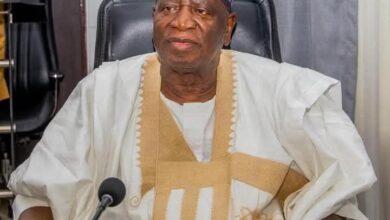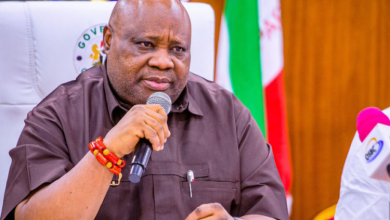Nigeria Continues Borrowing Despite Rising Debt Costs – IMF

Nigeria’s engagement with the global debt market has remained active in 2024, despite the challenges posed by high borrowing costs, according to the International Monetary Fund (IMF). At a press conference during the IMF/World Bank annual meetings in Washington DC, Tobias Adrian, the IMF’s Financial Counsellor and Director of Monetary and Capital Markets, acknowledged Nigeria’s continued activity in the debt market, despite financing costs being significantly higher than pre-2021 levels.
Adrian highlighted that frontier markets like Nigeria have managed to maintain considerable levels of debt issuance, which is a positive sign of economic activity, even as borrowing costs have increased. He noted that, although access to financing remains more expensive, the overall issuance levels are encouraging.
The IMF also commended Nigeria’s recent monetary policy measures, particularly the Central Bank of Nigeria’s (CBN) decision to hike interest rates and introduce foreign exchange reforms. These steps have been geared toward stabilizing the country’s economy. Adrian emphasized that the CBN’s shift toward inflation targeting and liberalization of the exchange rate is crucial, as inflation in Nigeria has hovered around 30%.
In addition to inflationary pressures, Nigeria has faced significant challenges due to natural disasters, including floods, which have exacerbated economic instability and worsened living conditions for many. These factors, alongside global economic conditions, have influenced the IMF’s cautious outlook for Nigeria’s growth.
In its latest World Economic Outlook report, the IMF revised Nigeria’s 2024 economic growth projection to 2.9%, maintaining the same rate as in 2023. This represents a 0.2% decrease from the IMF’s July forecast and a 0.4% decline from its April estimate. The revision reflects slower-than-expected economic activity in the first half of the year, driven by disruptions in agriculture due to flooding and ongoing challenges in oil production caused by security and maintenance issues.
Despite the downgraded forecast for 2024, the IMF expects Nigeria’s economy to grow at 3.2% in 2025, a slight improvement compared to previous projections. However, this is still lower than the World Bank’s estimates, which forecast Nigeria’s GDP growth at 3.3% in 2024 and a gradual rise to 3.6% in 2025-2026.
Meanwhile, Nigeria’s Minister of Finance, Wale Edun, held strategic meetings with IMF Managing Director Kristalina Georgieva during the conference. Their discussions focused on Nigeria’s economic prospects under President Bola Tinubu’s reform agenda. Edun underscored the importance of international support in ensuring the success of these reforms, particularly in securing affordable financing to maximize the impact of the country’s economic adjustments.
As Nigeria navigates these challenges, its active participation in the global debt market signals resilience, even amid high borrowing costs and economic pressures. The nation’s reforms, aimed at stabilizing inflation and boosting economic growth, remain critical in the coming years.



